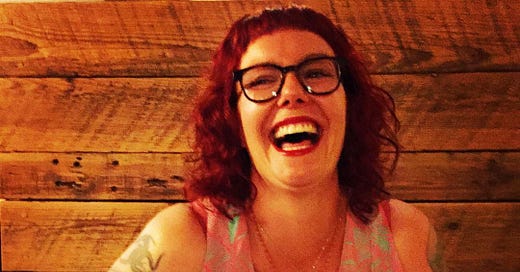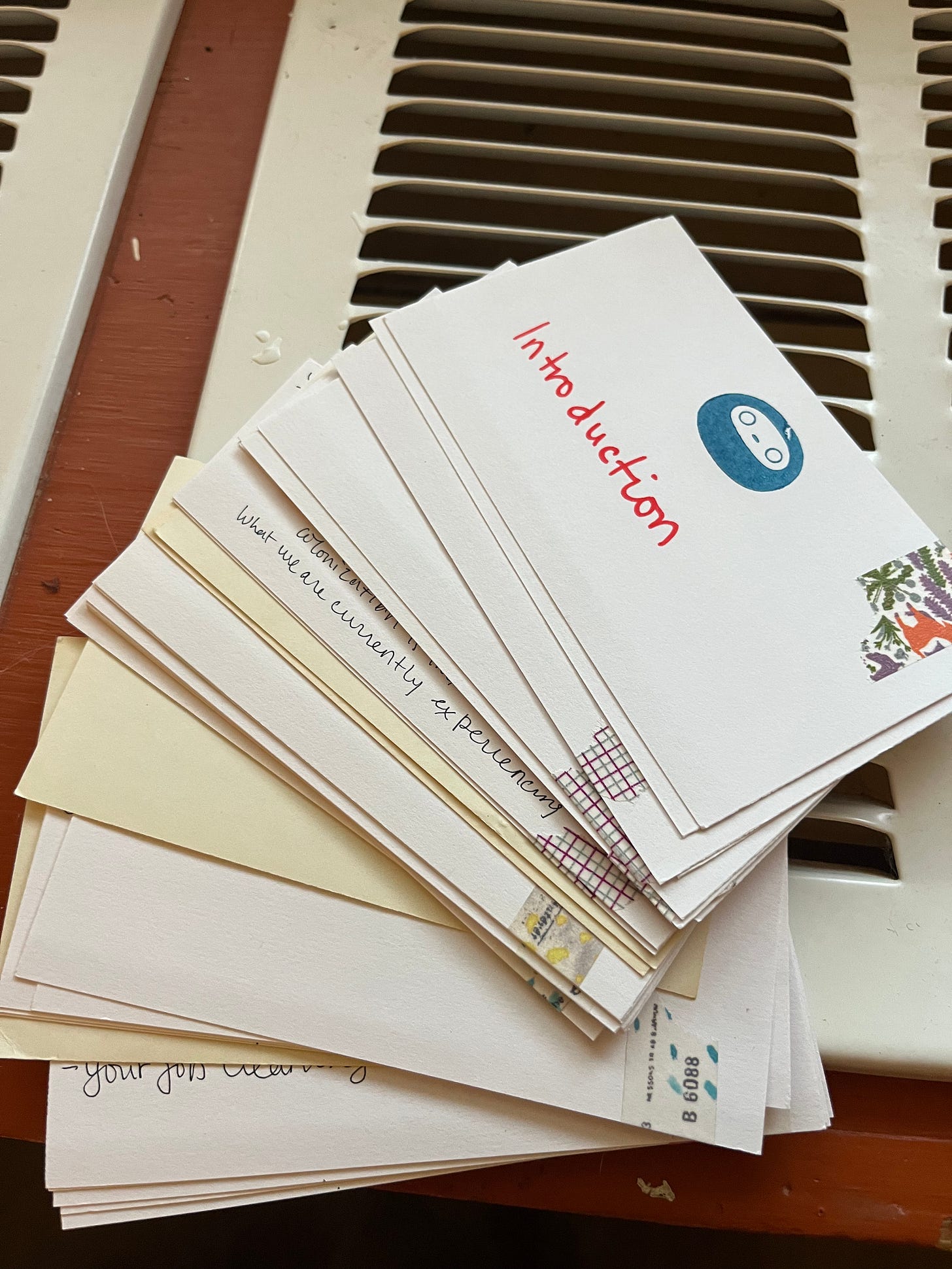I am writing you from my desk, where I have in earnest begun indexing my book. I call it indexing because I use index cards. It’s really not fancy.
These little cards are marked with washi tape, which helps me sense their order. Each chapter is marked on the top left corner, and each scene/moment is marked on the bottom left corner. The chapter cards are stamped and named with the chapter title.
I am forcing myself to break down each small moment, each encapsulated moment inside two transitions, onto one card. This is a lot of work, but it’s helping me understand where I am spending my time in the narrative space of the book, where I may be repeating myself, and the shape of the narrative.
I wish I’d done this years ago, but honestly I have been under tight deadlines with each revision, and this is the first time I wasn’t working with a tight turnaround. My editor has told me, “It’s important to make this book the best it can be.” I am grateful for that, though I do wish it had been t…
Keep reading with a 7-day free trial
Subscribe to Gathering to keep reading this post and get 7 days of free access to the full post archives.




